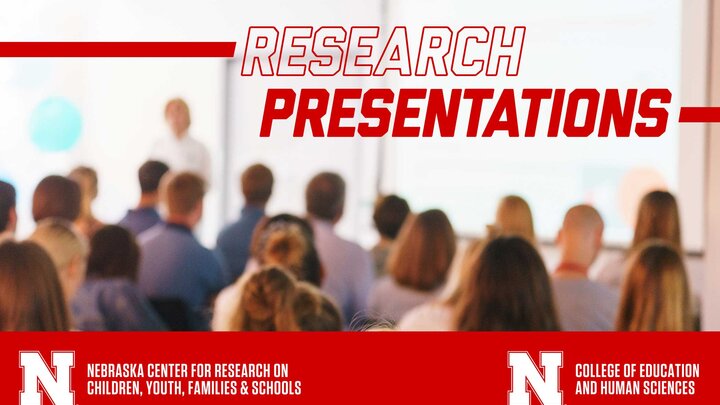The Nebraska Center for Research on Children, Youth, Families and Schools and the College of Education and Human Sciences will host a series of research presentations beginning Jan. 10 covering social, behavioral and educational challenges important to Nebraska and beyond. Each presentation will be followed by a question-and-answer session.
Topics include early intervention for children in U.S. elementary schools, parent engagement to improve children’s emotional and behavioral outcomes, community engagement to prevent substance misuse and school-based mindfulness programming.
The presentations, which are free and open to all, will take place in the Nebraska Union Heritage Room, but will also be available via Zoom. All times are Central Standard Time.
Monday, Jan. 10, 10:30-11:45 a.m.: Paul Morgan, professor of education and demography, and director of the Center for Educational Disparities Research at Penn State University, will deliver a presentation titled, “Using Population-based Data to Inform Practices and Policies for Children Struggling in U.S. Elementary Schools.”
Morgan will provide an overview of findings from a series of analyses of population-based data on children struggling in American elementary schools, including evidence about the early onset and over-time stability of these struggles, their inter-relations and modifiable factors that constitute potential targets of experimentally assessed early interventions.
Wednesday, Jan. 12, 10:30-11:45 a.m.: Kristin Duppong Hurley, co-director of the Academy for Child and Family Well-Being within the Department of Special Education and Communication Disorders at the University of Nebraska–Lincoln, will deliver her presentation, “Investing in Our Families, Schools and Communities: Intervention Research for Families of Students Receiving Emotional and Behavioral Supports.”
Duppong Hurley will discuss family intervention research focused on developing parent -to-parent support programs, implementing home-based family interventions for child-welfare settings, and investigating comprehensive frameworks for parental engagement in school. She will also discuss completed randomized trials, exploratory analyses of national longitudinal datasets and how she incorporates implementation and dissemination science into her research.
Tuesday, Jan. 18, 10:30-11:45 a.m.: Alex Mason, professor of epidemiology at the University of Tennessee Health Science Center, will deliver his presentation, “Precision-Based, Community-Engaged Substance Misuse Prevention Science.”
Mason will review and illustrate how principles from precision-based prevention and community-engaged intervention can help shape the next generation of substance misuse preventive interventions to promote population health and reduce health inequities.
Thursday, Jan. 20, 2:30-3:45 p.m.: Deborah Schussler, professor of education at Penn State University, will deliver a presentation titled, “Applying an Implementation Science Lens to Enhance Educators’ and Students’ Prosocial Skills: School-Based Mindfulness Programs in Context."
Schussler will describe how she has used implementation science to innovatively combine qualitative and quantitative methods to examine different aspects of school-based mindfulness interventions — i.e., curricular content, implementation, educator training, ethical underpinnings — in a variety of sociocultural contexts.




